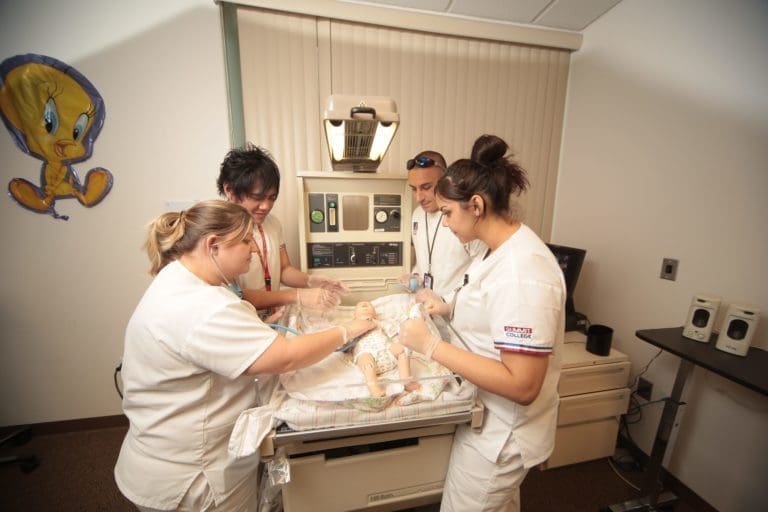There are many different kinds of nurses. All kinds of nurses are important in their own way. In this post, we’ll look at the differences between vocational nurses (VNs), sometimes referred to as practical nurses (LPNs), and registered nurses (RNs).
Education
On one hand, registered nurses are typically required to have a bachelor’s degree. Vocational nurses, on the other hand, tend to complete training programs at community colleges and trade schools. Both are typically required to pass different versions of the NCLEX exam before beginning work in the field. The classes each takes cover many of the same healthcare related topics.
While many future nurses opt to attend four-year colleges and universities for their degrees, vocational nurses can enter the workforce sooner. Many vocational nurse (VN) programs can be completed in less than two years.
Responsibilities
Registered nurses spend much of their time on the job taking care of patients. They perform duties such as assessing patients, administering medication, assisting doctors in running patient tests and teaching patients how to care for themselves when they go home.
LVNs, on the other hand, play more of a support role in relation to doctors and nurses. They typically work under the supervision of RNs and doctors. Their primary duties include tasks such as taking blood pressure, changing bandages and maintaining patient records. The responsibilities of LVNs may differ depending on their employer and their location.
Employment
The employment for both registered nurses and vocational nurses is expected to rise in the coming years. The need for healthcare as a whole is expected to increase.
The number of RN jobs is anticipated to climb 12 percent through 2028, while LVN/LPN employment is projected to increase by 11 percent during the same period, according to the Bureau of Labor Statistics. At the present, there is a need for nurses of all skill levels, especially in support roles like that of an VN.

Compensation
Compensation differs between RNs and LVNs. However, the time and money spent on the shorter schooling period enjoyed by LVNs could be a compelling reason to go that direction.
LVNs working in government settings earned the most, while those working in physicians’ offices earned the least of the top industries in which they were employed. RNs working in government positions earned the most among their peers as well.
Now that we’ve covered the differences between VNs and RN, you might decide vocational nursing could be the right healthcare career for you.
Discover the Summit VN Difference
Summit College’s Vocational Nursing program is one of the largest VN programs in California and is accredited by the California Board of Vocational Nurses and Psychiatric Technicians. Students in Summit College’s VN program receive a well-rounded nursing education that allows them to provide optimum care after licensure.
Summit College offers both full-time and part-time enrollment in its VN program, providing students with flexibility around their busy lives. The full-time program offers classes during the day and can be completed in 12 months. The part-time program offers classes during evenings and weekends to accommodate students who work other jobs. Students in the part-time program complete it in 18 months. Summit College offers its Vocational Nursing program at its San Bernardino Campus.
Discover the Summit Difference. Get started today at summitcollege.edu.


